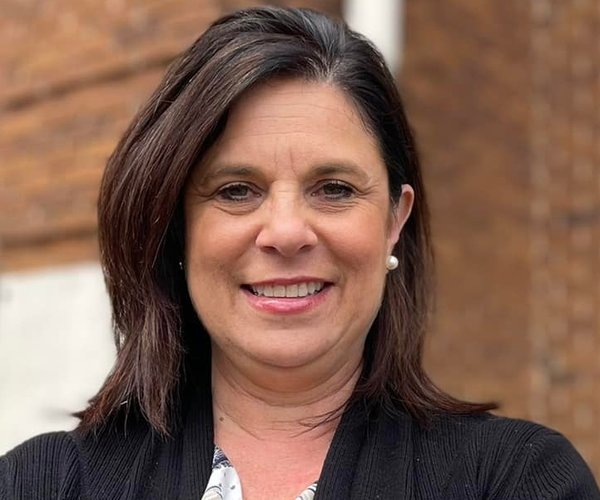If Newton County is to preserve its large swaths of rural land while at the same time continuing its economic development, one possible solution is to encourage the opening of more agritourism businesses. Another solution is to foster more small farms with a focus on growing produce for local consumption.
Those were the thoughts of panelists taking part in a discussion last Monday at Georgia Perimeter College on rural preservation. The panel was part of a week-long symposium sponsored by the college called "Community Harvest: Farm & Family, Progress & Preservation."
Panelists included Kay Lee of the Center for Community Preservation and Planning, Covington/Newton
County Chamber of Commerce President John Boothby, Newton County Farm Bureau President Brent Galloway and GPC Political Science Professor Wendell Broadwell.
Lee said high energy costs have changed the global food market place making it more expensive to ship produce from South America to the United States resulting in supermarkets looking to replace their international food chains with local ones.
"Wal-Mart is looking for local produce," Lee said, adding that the changing consumption habits of adults today are also affecting the locally grown movement.
Lee said members of Generation X and Generation Y are more demanding in their food tastes, taking into account things like whether their food is organic or contains pesticides in ways that the generations before them haven't.
"What is it that you want?" Lee addressed the audience, made up mainly of GPC students. "You don't give a rip about being rich and you'd really like to have a balanced lifestyle."
The food tastes and demands of younger generations Lee said leave her with "no doubt that we are going to see a return to a local [food] economy."
Boothby said despite the rapid rise of commercial and residential development on the Western side of the county Newton County still has half of its land zoned agriculturally.
Amidst a tide of gloomy news from the real estate and housing sectors of the county's economy, Boothby said he sees a silver lining in the downturn of residential growth in that it gives the county "an opportunity to take a deep breath and plan."
According to Boothby, Newton County is one of only three or four counties in the entire state that has a real chance of putting in place a pursuable plan that can both preserve its rural character and foster economic development. Other counties, including Rockdale County, did not have the proper plans in place to prevent development from getting away from them.
"We have an opportunity to have a happy end," he said.
Galloway, who owns a 1,200 acre cattle and hay farm in Mansfield, said he worries that not enough young people are choosing to pursue careers as farmers and planters, choosing instead professions that carry more social prestige.
Broadwell agreed with Galloway's summation of the way mainstream society views farmers today. If more young people are to choose farming as a career, there needs to be a turnaround in how we as a society view it as a profession, he said.
According to Broadwell, there are some 50,000 farms in Georgia and half of them are less than 100 acres. As of 2002, the most recent year for which information was available, there were 355 farms registered in Newton County for a total of 44,389 acres, according to UGA's Georgia County Guide.
Galloway, said there needs to be a broad cultural focus on reeducating Americans on just what it means to have a strong agricultural industry. Food grown in America is actually much safer to eat than imported food because other nations do not have the same strict regulations regarding the use of pesticides and food safety he said.
"There's a big misconception about modified crops," Galloway said, adding that improvements in genetically modified crops have resulted in double the yields for some crops and in others a reduced need for water. "The crops that we're growing are just as healthy."
Another reason to maintain a thriving agriculture industry in the country, Galloway said is the national security it brings. While other developed countries like the United Kingdom can no longer feed themselves without importing most of their food, the United States is one of the only countries in the world that could theoretically close its borders and still be able to feed all of its people.
"That's what makes us strong, not our military," he said.
Lee said the county could preserve its rural areas if there is a concerted countywide effort to do so. A detailed vision and plan backed by action are what is needed she said. Lee described one possible economic future for the county of a mixture of high-tech industries located at industrial parks like Stanton Springs and agritourism bed & breakfast farms that allow families to get a chance to experience farming for a few days. Other smaller farms could also open up she said whose crops and products are all bought by local residents.
She said the Newton County Board of Commissioners has already taken a proactive role in trying to control the type of growth that is coming to the county.
"These leaders have put a plan in place that looks to preserve a huge amount of land," Lee said, adding that the Comprehensive Plan recently passed by the BOC has attracted the attention of groups like the Atlanta Regional Commission who may be interested in helping to fund the county's preservation efforts.
Boothby said the time to plan for the needs of the county in 2050 is now. Greater awareness about the possibilities of more agribusinesses in the county and how those businesses could be niche-marketed to the greater Atlanta area would help he said.
"Get your facts straight and have a plan," he said.





